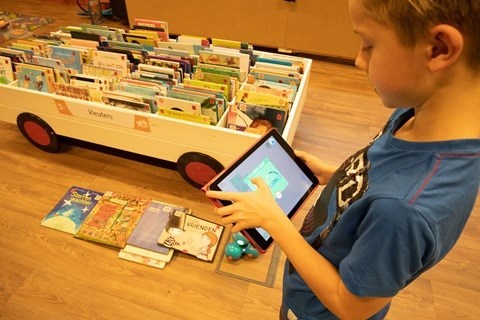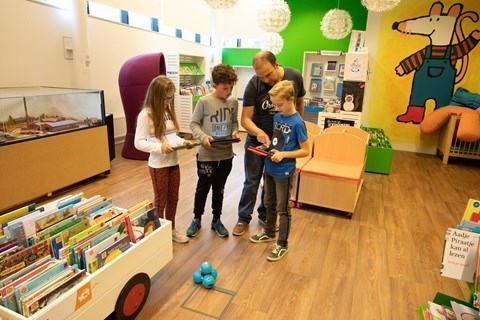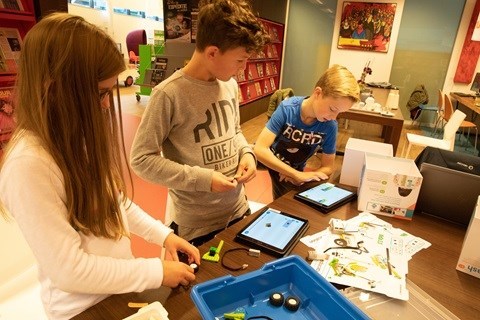Introducing children to programming

Corporate Social Responsibility
Corporate Social Responsibility has been part of our corporate culture for many years. It is so intertwined with our DNA that we can no longer imagine life without it.
We carry out CSR though undertaking and supporting various initiatives that contribute to society. For example, we have a CSR policy in the workplace and a CSR team that is committed to making a contribution to society as an organization. We also donate part of our turnover to various charities.
Enthusing the next generation
Our managing partner John van Beek played with the idea of transferring knowledge to children based on our CSR objectives. Software architect Robin Hermanussen also had the desire to give children a positive experience with programming.
As a company, we decided to contribute something to the education of children in the field of development.
A year ago John had taken on a high school student during an orientation internship. “Then we started thinking about how you can get young people enthusiastic about programming in an accessible way. We then had this student experiment with a Raspberry Pi in combination with a Makey Makey and Scratch. In this way we introduced him to technology and programming in a way that he could also use his own creativity." Robin says.
Getting started
Based on the desire to do more with this, the decision was made to organize programming lessons. Robin explains: “I had been following the Twitter account of the FutureNL foundation for some time. This organization develops good initiatives to make children digitally skilled. That way I was aware of what's going on in that world and I was inspired to do something with this.”

Programming lessons for children
We saw an opportunity to collaborate with BiblioPlus. “BiblioPlus has a program called TechLab. They organize expeditions for children with so-called "Technauts". These are BiblioPlus technology experts and experts from external organizations,” Robin explains. BiblioPlus also organizes a series of lessons for children in the levels Programming 1 and 2. These are four lessons of one and a half hours in which children are introduced to programming. Robin explains: “These lessons are aimed at learning to master computional thinking: learning to think like a computer thinks. It is easily accessible and easy to understand. Children link blocks together that form an executable computer program. Concepts such as conditions and loops are also covered."
Robin has taken on the task of giving a programming series 1 at BiblioPlus in Mill to a small group of students in groups 7 and 8.
Scratch and robots
The children were able to get started with Scratch and Scratch Junior during the first lessons. They programmed small pieces and immediately achieve a result. They did this for example by programming games such as Flappy Bird. Robin says: “The children all work very differently. One is very diligent with assignments and the other quickly lets the assignment go and gets very creative. They see that through simple changes to the program they can achieve extremely different results, which leads to funny situations." The children didn't just work behind their laptops. For example, they also programmed the behavior of a Dash robot and Lego with tablets.
Robin indicates that this primarily stimulates the creativity of the children and says about this: “What I liked the most was to see that the children really turned the parameters. With this the children were free in their creativity. They really started discovering and soon realized that if they change something themselves, that big things can happen. They like to see those results, because they have created the results by themselves. ”

Stimulating creativity
The lessons are mainly aimed at stimulating children's creativity in the field of programming. They see the results of their input almost immediately. The goal is therefore to create a real introduction to programming. This way, the children see that a lot of creativity is involved and that they can really create the outcome by themselves. "It is already successful when the children were having fun," Robin explains.
CodeWeek
This series of lessons has come to an end, but Iquality and BiblioPlus continue their collaboration. In the context of CodeWeek 2019, Robin Hermanussen and Remco van Toor will introduce two primary school classes to programming in a "Programming Tasting". These lessons will take place at various BiblioPlus libraries.
CodeWeek takes place this year from 5 to 20 October and is a citizens' initiative aimed at making programming and digital skills accessible to everyone in a fun way.


